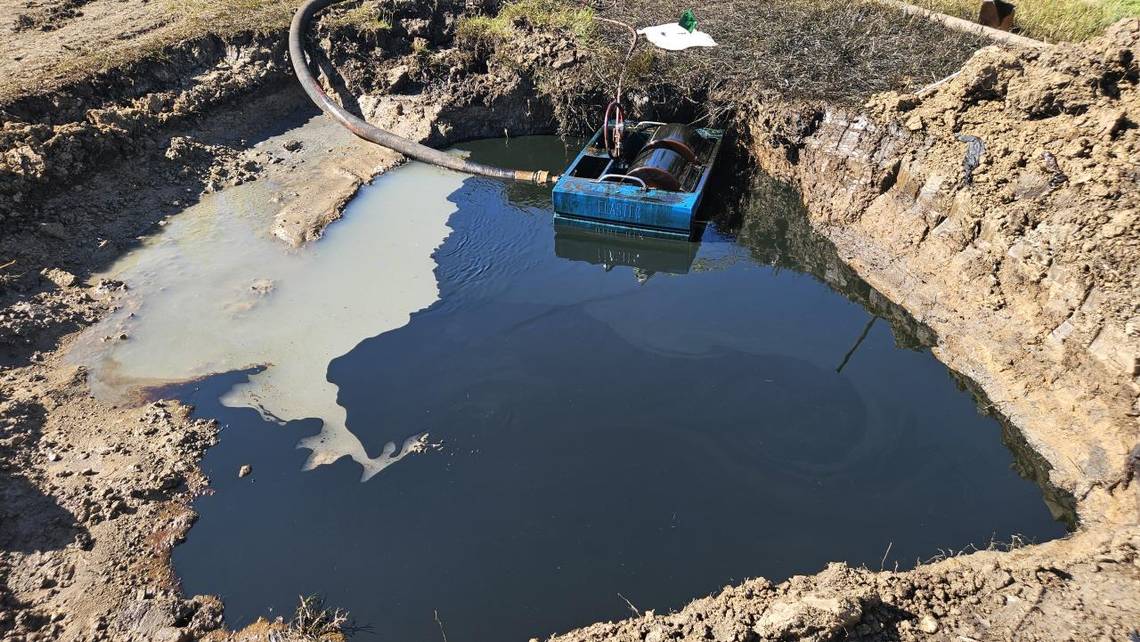The Texas Parks and Wildlife Department has contacted the city of Fort Worth to see if its services will be required to mitigate the effects of the oil spill cleanup underway at a water treatment plant in the east of the city.
The Fort Worth water department is using the Village Creek Drying Beds as part of an emergency response to a spill of 2,600 barrels of crude oil near Lake Arlington in early May.
The oil entered the Fort Worth sewer system and facilities at the Village Creek Wastewater Treatment Plant, disrupting the microbes used to treat sewage, known as waste activated sludge. The drying beds are being used to allow the water to evaporate out of the sludge so the affected solids can be trucked away.
Adam Whisenant, a biologist on the Parks and Wildlife Kills and Spills Team for North Texas, said his department was “left out of the loop” regarding the split.
While the city is not required to report the emergency response efforts to Parks and Wildlife, it is “typically recommended” in such situations, he said in an interview. His team was unaware of the incident until Friday.
“It’s news to us that Fort Wort is using the drying beds” to treat the contaminated sludge, he said.
Fort Worth water department spokesperson Mary Gugliuzza said she had been contacted by Parks and Wildlife at the beginning of the week. The department did not reach out to Parks and Wildlife because the event has “shown no negative impacts on wildlife.”
The water department had information about the spill’s impacts to the facility on its website for a couple weeks after the incident, she said.
“Had there been a threat to the public, we would have conveyed the risk,” she said. “EPA responded and was satisfied that there was no substantive environmental harm or public health threat.”
The person from Parks and Wildlife said they were contacted by local birdwatchers, she said, adding that she updated the birdwatchers on the situation and has received thank you emails from them.
Members of the Fort Worth Audubon Society told the Star-Telegram Thursday they have worries about the possible toxicity of the affected sludge.
There are several mitigating actions that Parks and Wildlife can take to prevent the birds that visit the drying beds from interacting with the contaminated sludge, he said.
Noisemaking machines called scare cannons can be used to frighten birds away. Colored flags are also effective bird deterrents. Netting can also be placed over potentially toxic materials to serve as a physical barrier to birds.
The water department spokesperson did not answer questions about whether the city would allow Parks and Wildlife to conduct such mitigation measures on the site.
The city of Fort Worth did report the incident to the Texas Commission on Environmental Quality to report the effects of the spill on the wastewater treatment plant, according to a TCEQ spokesperson, who said the initial report did not indicate any impact to groundwater.
The TCEQ’s DFW office contacted the city of Fort Worth regarding impacts of the spill on the treatment plant, “but no assistance was requested,” the spokesperson said.
